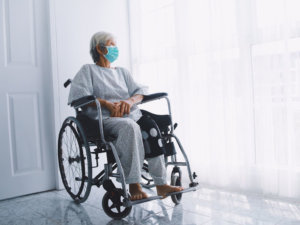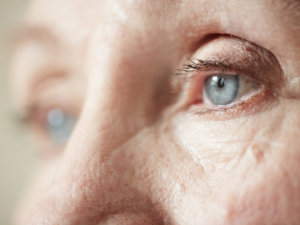For the purposes of this article, any mention of “immunity” will refer to civil immunity granted by the state and not immunity to the disease COVID-19. Furthermore, our discussion refers to the legal liability immunity granted to medical providers against medical malpractice lawsuits related to patients with the novel coronavirus.
In recent months, certain states such as Pennsylvania have passed executive orders and temporary laws that protect medical providers from lawsuits when treating patients who have contracted COVID-19. Iowa as well as Illinois, Kansas, Louisiana, and Utah have all enacted some form of protection.
There are some protections that exist that protect providers who may have been asked to treat a patient outside of their normal practice areas. For example, say a pulmonologist had to operate on a pediatric patient at Iowa Methodist Medical Center through extenuating circumstances.
Even though Iowa has initiated laws to protect providers from medical malpractice and nursing home abuse claims, they do not prevent all types of malpractice or nursing home abuse cases.
What Does This Mean for Nursing Home Residents?
While nursing homes benefit from the safety that civil immunity provides, those protections may actually hurt their residents. Mainly, these protections are meant to protect medical providers and premises owners from lawsuits filed because someone contracted the coronavirus.
However, these protections do not extend to typical grounds of Iowa nursing home abuse claims, such as gross negligence or intent to harm. These protections were made broad in order to allow medical professionals room to work with the resources and knowledge available. Especially since there continues to be much confusion around treating and preventing cases of COVID-19.

However, for nursing home tenants there lies a greater risk of nursing home abuse. For example, because nursing homes are generally privately owned and operated, they have the potential to employ cost-cutting procedures in order to increase their profit margins.
If nursing homes skip out on providing personal protective equipment (PPE) for their employees, then residents face an increased risk of contracting diseases. Additionally, residents face an increased risk of poor quality care and negligence.
What Does Civil Immunity Cover?

The new Iowa COVID-19 Civil Immunity legislation protects all types of businesses from litigation from someone contracting COVID-19 on the premises. Many other states have passed similar legislation to protect businesses from unnecessary lawsuits.
The controversy of the recent Iowa Civil Immunity legislation is that it provides broad protections for all types of businesses. On the outside, it appears that these protections mainly protect mom-and-pop businesses, small businesses, and local businesses. However, because the protections are broad, larger companies are also protected from rightful lawsuits.
In terms of medical negligence and COVID-19 cases, Iowa legislation offers broad protections to medical providers. In summary, the legislation protects medical providers from legal recourse when treating a patient for COVID-19 (See: Sec. 8. 686 D6. Liability of health care providers). However, these protections do not extend to “recklessness or willful misconduct” (See: Sec. 8. 686 D6. subsection 2).
What Is Not Covered by Iowa Civil Immunity
Currently, the COVID-19 civil immunity legislation does not affect the Iowa Statute of Limitations. However, proposed national legislation in the SAFE TO WORK Act would impose a one-year statute of limitations for exposure to COVID-19.
Once again, these Civil Immunity provisions do not apply to cases involving gross negligence, actual malice, willful misconduct, or reckless behavior. If you feel that you should start a malpractice lawsuit, call Galligan Law for a medical malpractice attorney in Iowa.
Does Civil Immunity Hurt the Rights of Patients?

The answer to this question is a complicated one. Because even though there are broad protections in place, civil immunity does not apply to cases that involve gross negligence or actual intent to harm. Therefore, so long as it’s possible to prove gross negligence or actual intent, you may still file a medical malpractice or nursing home abuse claim.
However, for an injured patient whose injuries were caused by the administering provider for COVID-19, the chances for recovering damages is minimal.
Requirements for Iowa Nursing Home Abuse Cases
If you suspect that your loved one endured nursing home abuse, in order to file a lawsuit you need to know the following:
1. Who can file a nursing home abuse claim
In Iowa, only certain people can file this type of lawsuit. First, if you are the victim of nursing home abuse, you can file a lawsuit. Alternatively, if you represent your loved one through the power of attorney or manage their estate, you can file a claim on their behalf.
2. When to file your lawsuit
The statute of limitations in Iowa limits the time period of personal injury and nursing home abuse claims to a maximum of two years after the abuse occurred. All injury claims must be filed before this deadline in order to proceed in court. Don’t wait to report nursing home abuse if you know about it. The sooner you begin your case, the better!
3. What counts as evidence
Just as with car accidents, birth injuries, slip-and-falls and dog bites, you should document everything. Ask for medical records and receipts. Take pictures, as well! If you can, try to get a second opinion from another provider. If you can identify, collect and provide testimonies from expert witnesses, your case will be even stronger.
4. You need an Iowa nursing home abuse attorney
Winning a legal case is never guaranteed, but in order to file a sufficiently strong case, you need the expertise of a nursing home abuse lawyer or attorney. Abuse in nursing homes causes serious pain and anguish not only for the victim but also for loved ones are friends. If you or a loved one have been a victim of nursing home abuse, call Galligan Law in Des Moines, Iowa for help.
Iowa Medical Malpractice Cases
In order to file an effective medical malpractice lawsuit in Iowa, your case must show an actual injury caused by negligence or improper care. By way of definition, “proper care” refers to the normal quality standard of care that a medical provider must give. Generally, if this standard was violated by way of negligence or actual intent, it constitutes medical malpractice.
Alternatively, if your case involves the wrongful death of a loved one, you can still file a malpractice lawsuit.
In terms of damages, Iowa medical malpractice laws allow awards for both punitive and non-economic damages. Meaning that you and your family can recover medical expenses as well as payment for pain and suffering.
Contact Galligan Law in Des Moines for Help Today
If you need help for either of these cases, call Galligan Law. Our Des Moines medical malpractice attorneys have many years of experience defending and representing victims of personal injury in the state of Iowa.
In fact, our leading lawyer, Brian P. Galligan holds several awards and is highly respected in the Iowa law community. So if you want help from one of the best medical malpractice lawyers in Iowa, call Galligan Law for a free case evaluation today.
Additional Resources for Nursing Home Abuse and Medical Error Cases
If you’re not yet ready to work with a Des Moines personal injury lawyer for a medical malpractice or nursing home abuse case, here are a couple of resources you can use to learn more.


